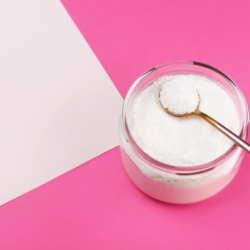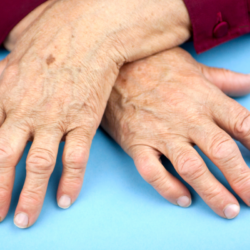Creatine is an amino acid essentially present in muscle fibres but also in the the brain. Most people get creatine from red meat or seafood. However, the amount is very small compared to the amount contained in food supplements. Different organs can also produce about 1 gram of creatine per day: The kidneys, the liver and the pancreas.
The body stores creatine in the muscles and uses it as an energy source source of energy. Supplementing with creatine is therefore interesting for boosting athletic performance and muscle mass gain.
In addition, this amino acid can also be used to treat certain brain disorders, neuromuscular disorders, congestive heart failure, etc.
Strength, mass and endurance
This amino acid can enable an athlete this amino acid can allow the athlete to do more work during his training sessions. In fact, this leads to greater gains in strength, muscle mass gain and overall performance. Creatine allows a faster recovery during exercise. It increases the formation of new muscle fibres and the amount of water in the muscles.
Muscles full of energy
Food supplements creatine-based products boost the phosphocreatine reserves of our muscles. This contributes to the formation of ATP, a key molecule used by our cells for energy and all basic vital functions.
When we exercise, ATP is broken down to produce energy.
However, the rate of ATP resynthesis limits our ability to perform at maximum intensity continuously, as we use ATP faster than we can reproduce it.
Creatine supplements increase our phosphocreatine stores, allowing us to produce more ATP energy to fuel our muscles during a high-intensity sports session.
Creatine and body composition?
Creatine is the world’s most powerful dietary supplement for building muscle mass.
It has been proven that a single intake for 5 to 7 days is sufficient to significantly increase the gain of lean mass.
In fact, this initial increase is due to an increase in the amount of water contained in the muscles.
Does creatine improve brain function?
Creatine has an important role in the proper functioning and health of the brain.
Studies show that our brain needs a large amount of ATP to perform difficult tasks.
Dietary supplements can increase the brain’s supply of phosphocreatine to help it produce more ATP. Creatine can also help the brain function properly by boosting dopamine levels.
The best food source of creatine is meat. A study on creatine supplementation in vegetarians showed a 20-50% improvement in some memory and intelligence test results.
In the case of elderly people, creatine supplementation for 2 weeks significantly improved memory. Creatine may therefore stimulate brain function, protect against neurological diseases and reduce age-related loss of muscle and strength.
Source:
https://www.ncbi.nlm.nih.gov/pmc/articles/PMC8949037/
https://www.ncbi.nlm.nih.gov/pmc/articles/PMC3963244/
https://pubmed.ncbi.nlm.nih.gov/10408330/
https://www.ncbi.nlm.nih.gov/pmc/articles/PMC155510/





